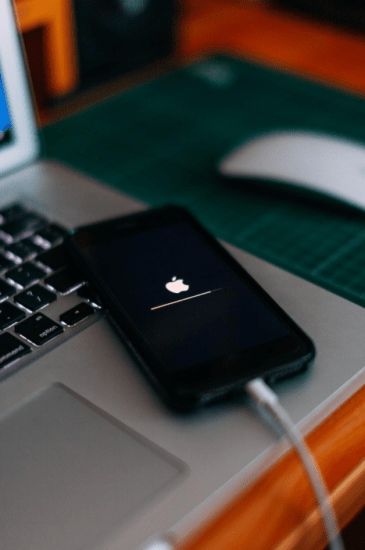An increasing number of businesses are looking for app development services to build and launch their mobile applications. Mobile apps offer a terrific channel for providing various services to customers.
Whether you outsource app development or hire an app developer as part of your in-house team, there are some mistakes that you must always avoid.
In this post, we’ll be taking a closer look at what these mistakes are and how to avoid them. Let’s dive in:
1. Not Knowing the Goals of an App
You’d be surprised at how many businesses rush into the app-making process without thinking things through. Mobile app development is an extensive project, so it’s important that you know why you’re building an app and what you want it to do.
When you fully understand the underlying goals of an app—as well as the problems it’ll solve or the value it’ll add to users’ lives—you’ll be making better decisions.
Knowing what matters will also keep you from following industry trends without thinking, and give you an app that combines form and functionality.
2. Inadequate Research
As a business owner, you’ll already have a good understanding of what your customers want from your products or services. But don’t assume that you know what they want from your app. Developing an app means performing specific research from scratch about your customers’ wants, needs, and expectations.
Being thorough with user research will help you understand behavioral patterns, demographics, motivations, and the user personas of your target market.
Research isn’t limited to users. You also need to know what your competitors are doing. Studying your competitors lets you apply their successful strategies to your own app, and avoid repeating their mistakes.
3. Budget Mismanagement
Poor budget management can tank a project at any stage. App development is a major expense, which is why you need to carefully consider your budget and how it’ll be handled. There are no one-size-fits-all strategies, and budgets can vary greatly depending on the nature and scope of the app.
Between research completion and the start of development work, prepare a detailed budget for your app development project. If you’re diligent with your research, you’ll gather plenty of insights that can help with budgeting. Some factors to consider, include the app’s must-have features, design elements, and how you plan to monetize it.
Once you’ve come up with a reasonable budget, ensure that it’s followed by all parties. Lastly, remember to set some funds aside for the unexpected costs and expenses that can come up in any project.
4. Lack of Communication
As a business owner, it’s your responsibility to make sure your mobile app developer understands your vision. Good communication is essential for smooth business operations, and app development is no different.
When you’re communicating with developers, a good rule of thumb is to assume nothing and leave no details out. It’s possible that what you think of as a given isn’t all that obvious to your developers. Being thorough with your communication and correspondence greatly reduces the chances of mistakes.
Of course, you should also make sure you select an app developer consultant that you can work with. If you’re a mismatch from the get-go, things will only get more complicated down the line.
5. A Bad UI/UX Design
A poorly designed User Interface (UI) or User Experience (UX) can be disastrous for an app. Not only does it drive users away, but it can also put a halt to the plans you have for your app. You’ll be looking at mass uninstallations and bad reviews at best—or an expensive redesign phase at worst.
Common UI/UX issues include:
- Sluggish loading speed
- An unattractive design
- Complicated navigation
Remember to put your clients first as you finalize your UI/UX design. Make changes where needed depending on the client feedback before launching your app. Even if it’s not the most technically sound advice, client feedback can often point you in the right direction.
6. Insufficient Testing
Stringent quality control is necessary for good app design. You don’t want to stretch the testing process unnecessarily in your quest for a “perfect” app, but a lack of proper testing can have terrible results.
There are a variety of testing strategies that you can use, including:
- Proper documentation of test cases
- Unit testing for individual evaluation of the app’s features
- Functional testing for flawless performance
- UI/UX tests
- Regression tests
Giving the testing phase the attention it deserves can help you find and fix problems in time.
Conclusion
App development is a long process. You’ll be going over various details with your chosen app development company for many months. Mistakes are an inevitable part of the process—but fortunately, you can avoid the biggest ones with the advice we’ve discussed here.
Guest article written by: The author is affiliated with Carrot, a web and mobile app development company offering iOS app development services and Android application development services to businesses in various industries. Hire an app developer consultant by contacting Carrot through its website.



